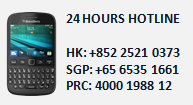Spain

SPAIN: TOUGH POLICY AGAINST VESSELS LACKING THE NECESSARY CERTIFICATES ON BOARD AND AGAINST POLLUTERS.
LACK OF CERTIFICATES. In Circular 4A/2003 we informed about stricter port inspections of 30% of vessels calling to Spanish ports under the Paris Memorandum. We also informed that in these MOU inspections if any deficiencies were found and either not rectified or understood to be severe deficiencies, the vessel could not only be immobilized under the PSC Inspection Procedure, but also be detained by the Harbour Master under our Ports Law as a precautionary measure in a sanctioning procedure against the owners and the Master to secure payment of the possible sanction and a minimum guarantee of Euros 30,050 be required to release the vessel.
Last month, a bulk carrier with logs on board was inspected in the port of La Coruna by the PSC Inspector. All the vessel's certificates were checked and as the vessel was found to be lacking the ISPS necessary certificate, she was immobilized. Following negotiations with the HM Inspector, the vessel was given three days to provide the certificate. The ISPS certificate was received by fax and presented to the HM who then agreed to the vessel's departure. Commencement of a sanctioning procedure against the owners and Master of the vessel and the request for a guarantee of Euro 30,050, were luckily avoided.
If a vessel calling to a Spanish port without the necessary original Certificates on board is immobilized under the PSC Inspection and the Harbour Master concerned is not flexible enough to accept that the certificate (or copy of same) be provided within a few days, it may then happen that the vessel is detained and a sanctioning procedure is started on the basis that there is an article in our Ports Las contemplating as a severe infringement the lack of the necessary certificates on board. The sanction can reach Euro 180,303.
The only way to release a vessel if a sanctioning procedure is started by the HM is by providing a guarantee (cash money, cheques, bank guarantees and treasury bonds). Although a Circular of the General Directorate of the Merchant Marine advises all Spanish Harbour Masters that the minimum guarantee to be requested in a sanctioning procedure following MOU inspections, is of Euro 30,050, the GDMM has recently instructed all HM to request a minimum guarantee of Euro 60,101. However and given that this request has not been made in writing, you may find that whilst some HM will continue to request a minimum guarantee of Euro 30,050, some other HM will follow Madrid's recent instructions and request a minimum guarantee of Euro 60,101.
POLLUTION. In Circular, 6A/2003 we advised about Spanish Maritime Authorities' tough response to pollution following the mv "PRESTIGE" casualty, where large security guarantees for sometimes seemingly minor pollution incidents were requested. We also advised that the sanction against the vessel depends on the type of infringement (small, severe or very severe), and proceedings are launched against ship-owners, managers or operators, Masters and P&I insurers.
Whilst in small infringement, following pollution incidents, the competent authority to decide on the sanction is the HM involved, in severe infringements the competent authority is the General Director of the Merchant Marine and in very severe infringements, either the Ministry of Transport or the Council of Ministers, depending on the amount involved. The authorities to liaise with are therefore different.
Only two weeks ago in the port of Vigo, that is during the high summer time month of August, when all the beaches are full in that region and the city is full of tourists and when the largest passenger vessel of the world, the "QUEEN MARY 2", was (unluckily) berthed at that port, a fishing vessel belonging to a Spanish owners, with foreign flag, which was full and the bunker split out to the vessel's deck at midnight and from there to the sea.
According to the Maritime Authorities, at that port the vessel had a leakage of 1,000 litres to the sea. According to the managers, the pollution was of only 100 litres to the sea. The reaction for the clean-up operations by the Maritime Authorities was quick, although it was said that neither the vessel nor the terminal reported the spillage to the Harbour Master until eight hours later. The Authorities advised that had it not been for this late report, the expansion of the stain could have been avoided. Some bathers apparently came out of the water with spots of fuel oil that was nearby two of the beaches. The Mayor of Vigo complained that this spillage had caused a very bad impression of the city during the visit of the "QUEEN MARY 2".
Although the amount of the spillage was still unknown, it was taken for granted that it was of 1,000 litres and the General Directorate of the Merchant Marine in Madrid decided to start a sanctioning procedure for severe infringement against the owners of the vessel, Master and P&I insurer. The vessel was detained as a precautionary measure and a guarantee of Euro 600,000 was requested to cover the possible sanction. Another guarantee of Euro 300,000 was also requested to cover the cleaning expense as this is the policy of the GDMM in Madrid.
All ship-owners and Masters calling to Spanish ports should have all certificates on board in order to avoid unwanted detentions and to ensure that no unauthorized discharge occurs at any time when a vessel is in the Spanish waters and should a spillage occurs, that the nearest HM be immediately.





